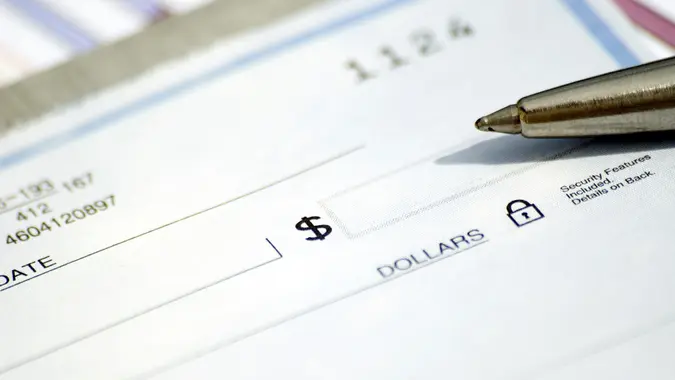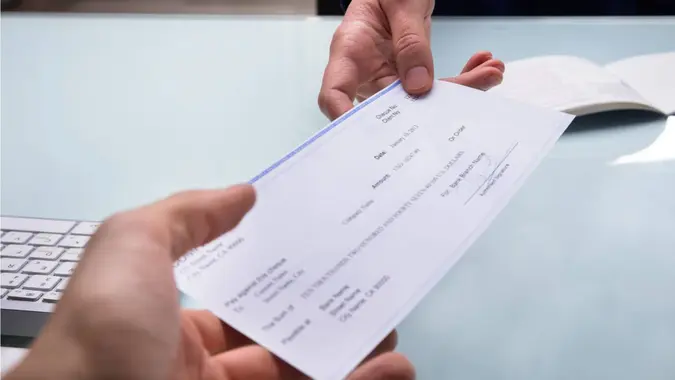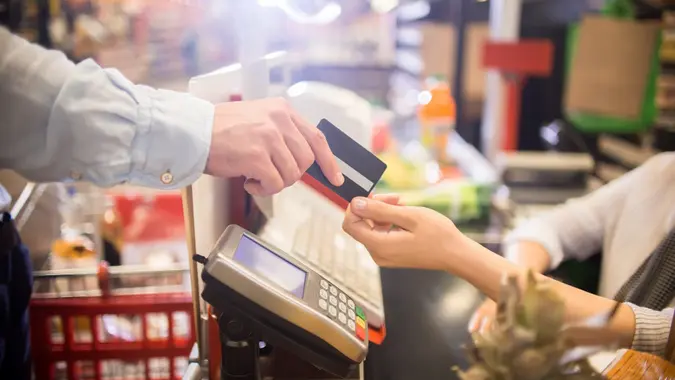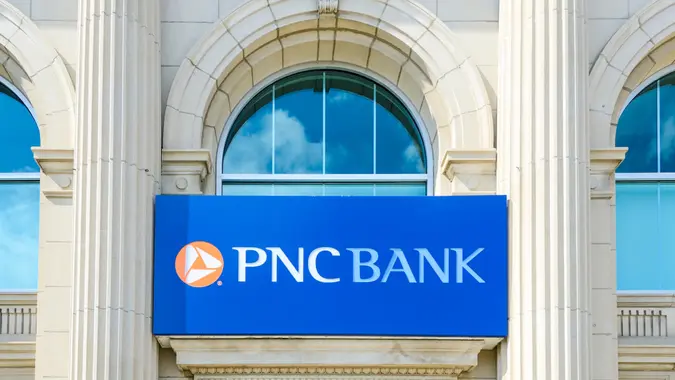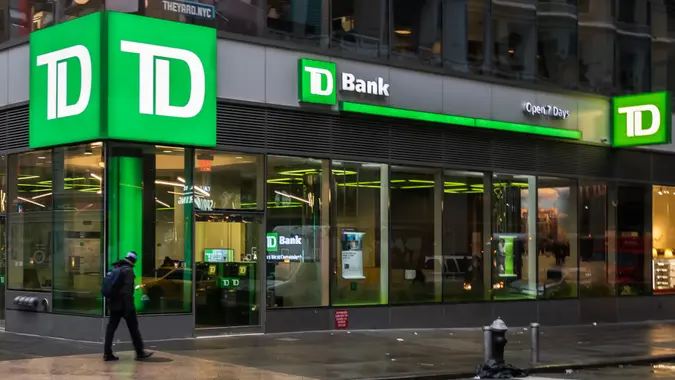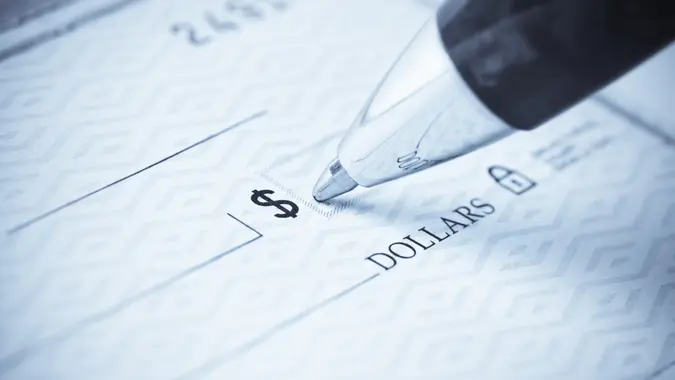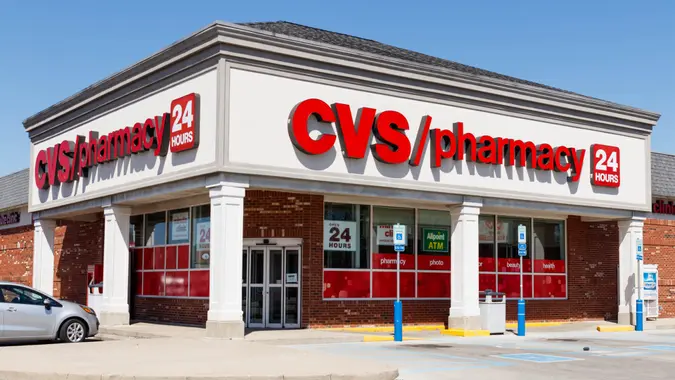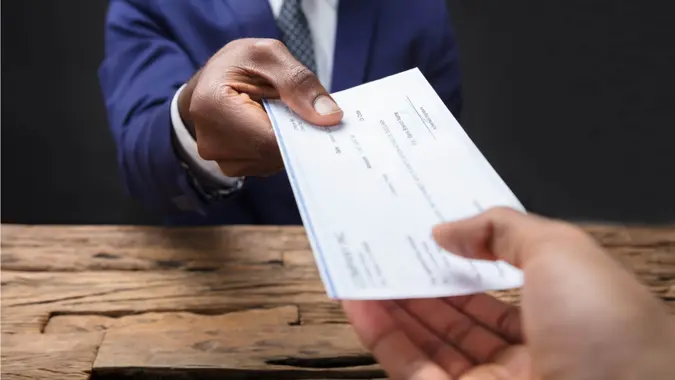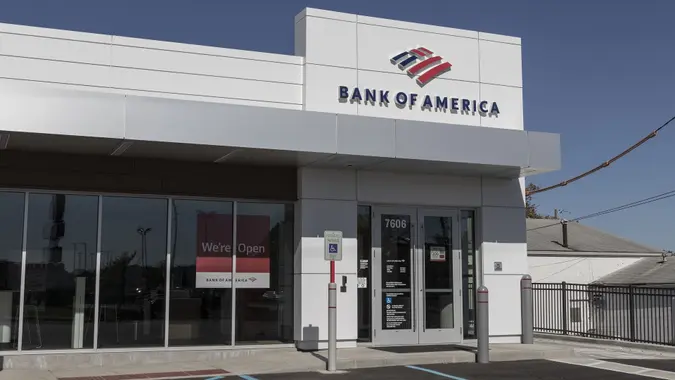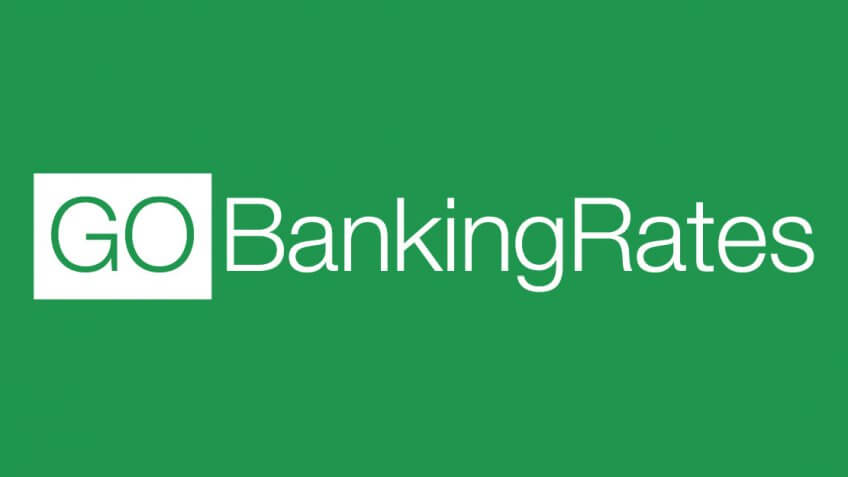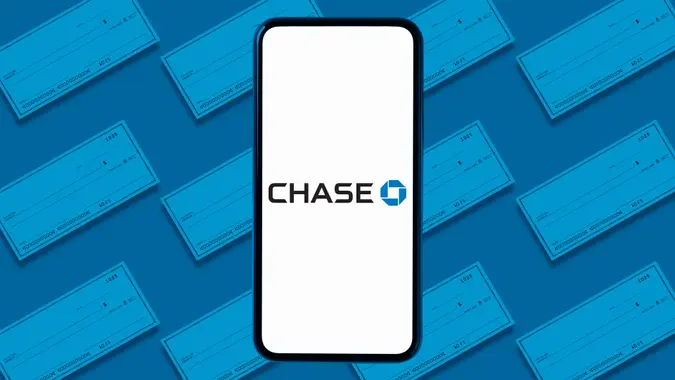I’m a Bank Teller: 9 Reasons You Shouldn’t Open More Than 2 Checking Accounts

Commitment to Our Readers
GOBankingRates' editorial team is committed to bringing you unbiased reviews and information. We use data-driven methodologies to evaluate financial products and services - our reviews and ratings are not influenced by advertisers. You can read more about our editorial guidelines and our products and services review methodology.

20 Years
Helping You Live Richer

Reviewed
by Experts

Trusted by
Millions of Readers
There are no rules, laws or regulations regarding the number of checking accounts someone can have, and some people take the opportunity to maintain several. But how many are too many?
While everyone’s perfect number of checking accounts will depend on their unique financial needs and goals, the people who know the most about the subject — bank employees — understand the potential benefits and drawbacks better than anyone.
GOBankingRates spoke with Iman Hakim, relationship advisor at Addition Financial, a credit union in Lake Mary, Florida, to get the inside scoop on how many checking accounts are too many for most people in most situations and why.
Why Would Anyone Need More Than One Checking Account?
Citizens Bank, CNN and Forbes outlined potential benefits compelling many people to open and maintain multiple checking accounts:
- Separating business and personal finances: Many business owners choose to or have to maintain separate accounts for their company funds. In some states, for example, the law requires lawyers to have both attorney business and trust accounts.
- Maximizing rewards: Some banks incentivize customers to open more than one account by waiving fees or offering higher yields for other accounts if they do.
- Pursuing complementary features: Some customers open accounts with different beneficial features. For example, one bank might have local branches and lots of ATMs, and another might pay interest on checking balances.
- Qualifying for extra FDIC insurance: Standard FDIC insurance covers up to $250,000 per account. Those with exceptionally high balances might open extra accounts to protect their funds.
- Separating partner/marital funds: Many spouses or partners maintain individual finances and might have one personal account each and one account for joint household expenses.
- Budget implementation: some people might be more successful with budgeting strategies like 50/30/20 if they used a dedicated account for each spending category.
- Unique budgeting opportunities: Some people might use multiple checking accounts to track spending with different income sources, like wages and investment gains.
- Separate accounts for special funds: Someone with unique expenses, like ongoing medical bills, might have one account just for that and another for household expenses.
- Joint and individual accounts: Some people might maintain one joint checking account with a spouse, partner, child or roommate and another account just for them.
The Risks of Having Too Many Accounts
The same publications outlined the potential hazards and headaches that come with maintaining multiple checking accounts.:
- Money management gets complicated: You have to check your balances, stay updated on policies, fees and changes, and prevent overdrafts for every account you maintain, which can quickly become frustrating and overwhelming.
- You give hackers extra targets: Each new account is a potential door for online criminals and data thieves to try to exploit.
- You might fail to meet minimum balance requirements: Some checking accounts charge fees if your balance falls below a specific threshold. Maintaining the minimum gets harder with each new account, which increases the likelihood that you’ll incur fees and mismanage your money.
If One Isn’t Enough, Two Probably Is
So, with the potential pros and cons laid out, should you open more than one checking account, and if so, how many are too many?“It can be helpful to have two checking accounts to budget for yourself,” Hakim said. “That way you have one checking account for your everyday spending needs and a second account for the household you pay your bills from.”
Providing they don’t have business obligations that require a third or even more, two should probably be enough for most people who think they need more than one. Beyond that, the negatives will probably begin to outweigh the positives.
“I don’t recommend having more than two checking accounts because monthly maintenance fees can occur and because of potential confusion between accounts,” Hakim said. “A good rule of thumb: Always keep it simple.”
How To Stay Safe and Organized
According to CNN, anyone with multiple checking accounts should take the following steps to protect their accounts and, as Hakim suggested, keep it simple.
- Periodically review upcoming automatic payments and debits to ensure they match your records and that they won’t create overdrafts.
- Check your balance regularly to make sure you’re not at risk of falling below any minimum balance requirements.
- Keep a record of credits and debits for each account.
- Immediately report any unfamiliar debits or purchases to the bank.
 Written by
Written by  Edited by
Edited by 



